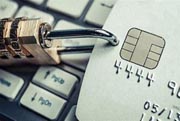Surfing the Internet
Cruising the Web
Safe Internet Surfing - Web Browsing
Updated: November 25, 2019
By: RSH Web Editorial Staff


How many times have you Clicked on “Agree” without reading the terms (and installing some great malware). Downloaded files from questionable websites. Doing online shopping with that free public Wi-Fi. Using simple passwords, because you think no one is watching
There are many ways you can put yourself in trouble online, but some of these habits are common mistakes not to be ignored. You will be surprised at how many times these dangerous surfing habits are overlooked. Are you guilty of any of the below examples? If "Yes" try our solutions, they could just save you from some very big trouble
Anti-malware - Antivirus
Ignoring Antivirus updates is just bad but not having any apps that protects you from malicious threats is even worse. Do your research and find yourself reliable anti-virus and anti-malware programs. We have listed a few here:
Kaspersky Free Antivirus
Bitdefender Antivirus Free
Avast Free Antivirus
Malwarebytes Cybersecurity
SpyBot Search & Destroy
Uploading files to the Cloud?
Think your data is safe when you upload to the cloud? No they are not. Cloud companies can access your files anytime they want. They are also vulnerable to cyber attacks and data breaches, which can give away your sensitive data. Avoid this by encrypting your files before uploading them to the cloud to keep your secrets private no matter what. We suggest Data encryption tools, such as
BitLocker
VeraCrypt for Windows, Mac OSX and Linux
FileVault 2 for macOS
AxCrypt
PeaZip
WinZip
Never use the same Password
If a hacker manages to get that one password you use for every login, they will have no trouble getting into all of your accounts. Don’t be lazy here. Think of a strong, unique password each time you create a new account, especially for banking or shopping sites. One of the best ways to create (and more importantly – remember) your password is to use pass phrases. You can use a middle name of your spouse, zip code of your work, throw in a strange character, then your initials but in caps
This example might look like:
rose44109#HWH
Looks like garble text right? Exactly. But look how easy it would be for you to remember, and best thing is no more "Sticky Notes" for anyone to see. You can also get a reliable password manager to help you remember all your unique passwords. Also see our blog on Creating a Strong Password

Browser Extensions
There are thousands of extensions that supposedly help improve your surfing. Do you really need them? Remember that the more extensions and plugins you have in your browser, the riskier things get. You could download a plugin or extension that collects your data or worse can infect your computer or device with malware. Choose those extensions wisely. Only install the ones that can actually help and will protect your privacy
Computer Protected?
We all store more sensitive information on our computers than anywhere else. But most do nothing to protect it. Do not make it easy for someone to steal your private information. Put a password on your computer and lock it when not in use
Mobile Device Protection
Unless you take your phone everywhere you go, without ever leaving it unattended. You need some sort of lock screen protection. If you do not lock your device anyone can install malware or spy-ware without you even noticing. We also recommend enabling "Remote Location and Wiping" where possible. If someone steals your device you can quickly erase all your private information remotely
For more reading - Security Apps and Tools for Smartphones
Links in Email
Infections to you computer or device is successful because you click on links in your email fom a random sender. This is known as phishing, and it happens to more people than you would expect. These phishing emails try to lure you into visiting fake websites, opening attachments, fake bank notices... The hacker then installs malware on your device or steal passwords, credit card details, other sensitive information. If you do not know who it came from why on earth would you click their link
You will also want to see our blog on How to Spot a Fake Email
HTTP Websites
HTTP in the prefix of the website address indicates that your connection is not secure, meaning that hackers could see any sensitive data at that site. This is especially dangerous for online banking and cases when you need to provide private information. Only use Websites that use SSL Encrypted connection, indicated by "HTTPS"
What is HTTP and HTTPS? Explanation and Definition
PublicWi-Fi
PublicWi-Fi or wireless networks almost always lack proper protection, leaving users open to hacking and attacks. When on a publicWi-Fi, never check banking or any sensitive information, especially if it is work or money related
Is your Smartphone Secure?
Do you take your mobile device everywhere you go? Why do you keep it unprotected? With so much sensitive information on your smartphone, securing your mobile device should be the first thing you do after you buy a new phone. Start by managing your security settings, adding lock screen protection, Also see our blog on "Outsmarting your Smart Device"
Warning Pop Ups
When surfing you may come across certain websites that threaten you by claiming to have found malware, viruses or outdated software on your computer. NEVER, never, never, click on any of these. They will try to install malware, ad-ware or worse a virus on your device
Wi-Fi Passwords
Strong password on your homeWi-Fi? If not you are susceptible to easy hacking. If your network is hacked they can collect all your sensitive data and private information. Also see our blog on Creating a Strong Password

Read "All terms" on software install
Reading the terms and conditions every time is a pain in the ... But you should read those terms every time. Here is why: When you install apps or software without reading the terms you may be allowing the software to do some very undesirable things. Collecting information about you, listen to your conversations, installing Trojans, Viruses, Malicious Software and Adware, the list can go on and on. So read, with every install
Webcams
Ever have that feeling someone is watching you? Maybe through your Webcam? You may just be right. Things like webcam hacking, snooping, and location tracking happens all the time. If you suspect someone hacked your webcam or hacked you without your consent, do not ignore this. Read our blog on "Online Privacy and Security, Protecting Your Privacy". This article will help find out if your camera has been hacked, and take some steps to stop it
Related Articles
How do I Block Spam Text Messages
More than just wasting your time and being annoying. If your data plan has limited data plans Unwanted calls and Spam texts can cost you money
DNS Hijacking, What is It, How To Prevent It
DNS Hijacking can be a serious online threat. What is DNS Hijacking or Redirecting, different types of Attacks, and ways to avoid it